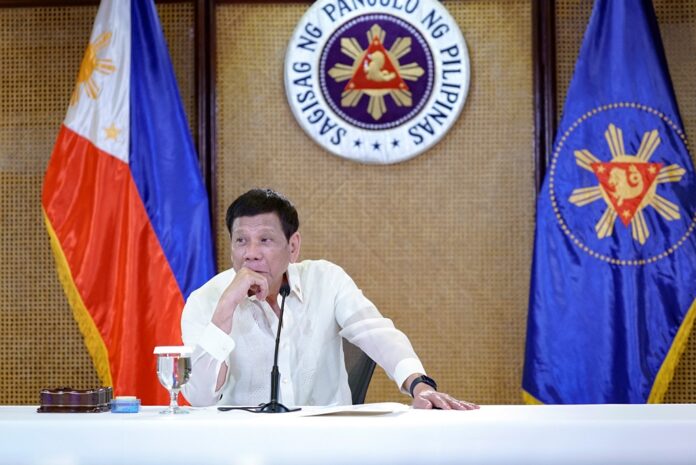MANILA: Outgoing Philippine President Rodrigo Duterte has announced he will carry on with his “war on drugs” even after the expiry of his term in office next month.
The Philippines has come under pressure from the UN to investigate allegations of systematic killings of drug suspects under the anti-drug campaign, which Duterte has led since assuming power in 2016.
According to official data, Duterte’s war on drugs has led to the deaths of over 6,000 Filipinos, but the International Criminal Court estimates the death toll could be 30,000.
The court’s prosecutors launched an investigation into the anti-drug campaign in September last year, saying it appeared to have been “a widespread and systematic attack against the civilian population” and could amount to crimes against humanity.
The probe was suspended two months later to assess a deferral request from the Philippine government and has not resumed since.
As Duterte’s six-year term expires on June 30, he said in a televised meeting with Cabinet members that drugs would make Philippine society “dysfunctional.”
“We can continue this fight even if I am already a civilian,” he said, adding that he would rather see drug lords and drug peddlers “dead than alive.”
“If you destroy my country, it is as if you ended our lives. So, I want drug lords to know I will forever remain your enemy. Remember that.”
Once he leaves office, Duterte will not have the official power to pursue his war on drugs.
“He cannot do that in his official capacity anymore,” the president of the National Union of People’s Lawyers Edre Olalia told Arab News. “But, of course, you and I know that he’s still in power through proxies.”
Duterte’s daughter, Sara Duterte-Carpio, is the running mate of Ferdinand Marcos, who scored a landslide victory in this month’s presidential election and is set to be inaugurated on June 30.
During his presidential campaign, Marcos vowed to continue Duterte’s policies, although he told the media he would also focus on education and rehabilitation in dealing with the country’s drug problems.
For Olalia, the fact that the drug problem still exists proves that Duterte’s approach has not helped address it.
“Otherwise, we will be harvesting the fruits of such an approach, if indeed there was now a lower supply of drugs in the market, fewer drug addicts, and if there were no more drug lords. That’s the best proof that it really is not working.”
Sign in
Welcome! Log into your account
Forgot your password? Get help
Password recovery
Recover your password
A password will be e-mailed to you.

